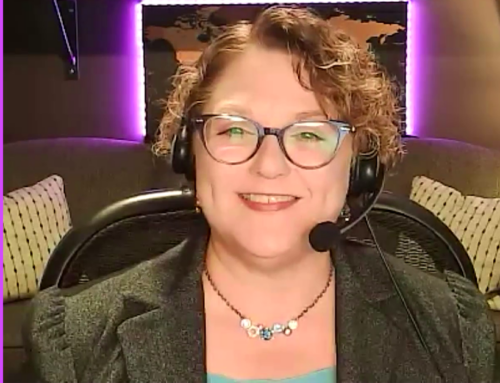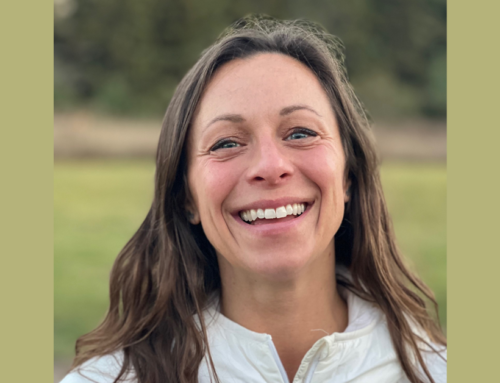What separates the merely good from the absolute best of the best? Is mastery an end that we can achieve, or is it a lifelong process of continual evaluation and improvement?
I’ve been fascinated by these questions for a long time, particularly as they relate to what drives peak athletic performance and how those concepts might be applicable in other disciplines as well.
Like, say, going from being a competitive long distance runner as a kid to running a successful life-centered planning practice! After all, you and I won’t ever stand on an Olympic podium. But we do have to excel in the high-stakes sport that is business so that we can deliver the best results for our clients.
So I googled “top sports psychologists in the US,” and it turns out that one of the best in the country was right down the road from me.
Dr. Barbara Meyer is a professor and director of the Laboratory for Sports Psychology and Performance Excellence at the University of Wisconsin – Milwaukee. Dr. Meyer is not only an academic, she’s also a sports psychology coach who works with professional and Olympic athletes on the mental side of the game. In fact, Dr. Meyer has trained athletes at every Winter Olympics since the 2002 Salt Lake City games, where her client won a gold medal.
In this conversation, Dr. Meyer and I discuss how to prepare mentally for a peak performance in any profession, striking a balance between sticking to the process of mastery while still achieving your desired outcomes, and how the concepts of self-regulation and visualization can help you monitor your behavior and alter it based on the demands of the situation you’re facing.
If you’re serious about personal improvement and growth you’re going to love this episode.
To continue reading the rest of this post, please register below with your email address.
Quotes from Dr. Barbara Meyer
– The research would generally support the idea that we should expose kids to activities in all domains. Expose them to some sports, expose them to some music, and expose them to some other sort of performing art, or languages, and let them gravitate a little bit and find what they’re most passionate about. What they can master.
– I was a vocal tennis player. I can very vividly remember when I would make a mistake, I would yell, “You’re so bad, you’re so stupid.” I think about that now and what I know in terms of neuroscience, and what I know now in terms of motor control. I was setting myself up for failure. I can really relate to some of my clients when I see them have some sort of an outburst on the field or on the court, because I was that athlete. I understand wanting something so badly and not knowing how to channel your brain in order to help you to make that happen.
– Some athletes are incredibly physically gifted, and talented, and have worked really hard to hone their physical and their technical skills. Maybe what separates them is the mental. Some athletes may have more of a tactical sense, and need to work on their physical skills. But most scouts, most coaches, many front office personnel will say that it is that mental piece that separates the ones that are going to make it to the next level and the ones who aren’t going to make it. I think of it this way: at some point, everybody can run fast. They can lift a lot of weight. They’re pretty flexible. They know the game well. So how are they going to persevere? How resilient are they going to be when they have setbacks? How are they going to handle the 24/7, 365 day a year nature of what elite and professional sport is today? A lot of that is the mental piece.
– One of the biggest traits of top performers is self-regulation. Your ability to monitor and control your behavior, your emotions, and your cognitions, and then to adjust those behaviors, emotions, and cognitions to meet the demands of the situation. That’s one thing that elite athletes have to be able to do, and that performers in any domain have to do as well.
– A second key trait is the ability balance a mastery and an outcome orientation. Mastery being, I want to get better, I want to improve, I want to become more competent, so bigger picture. Balance that with the need or the desire to produce and win in the short-term. That balance of mastery and outcome orientation is another quality that peak performers across domains share.
– We’re trying to make the extraordinary ordinary. We are trying to make that Olympic run the same as every run they have been taking for the last decade. The same thing, I think, goes in any sort of performance domain, that you have figured out what it’s going to take to close this deal. You have visualized and practiced what it’s gonna take to give this presentation, and you have been working on that and practicing that in front of everyone who will listen. You have been working on that in every little business deal leading up to this big business deal, so that by the time you get to the “big game,” what you’re thinking, doing, working on is your habit.
– We obviously like to prepare for the best case scenario, but we also wanna be prepared for the worst case scenario. How am I going to recover and reset if I can’t answer a question? How am I going to recover and reset if I hit the ball out of bounds and have to take a drop in golf? Because it’s going to happen. You’re going to make mistakes. We’re not trying to program a mistake, but how do we prepare for those suboptimal performances, and then see and feel, through visualization, ourselves managing it and coming through it to be successful once again.
– People often are surprised that they aren’t achieving their outcome. What are you consistently doing day in and day out to get that outcome? Not what are you doing the day before, or the week before, but what are you doing day in and day out with that process, with your mastery, to maximize your chances of success?
Resources
– University of Wisconsin – Milwaukee College of Health Sciences Visit Dr. Meyer and her program online.
– “An Astronaut’s Guide to Life on Earth” by Chris Hadfield Dr. Meyer includes this book about the rigors of astronaut training in the curriculum of her Psychology of Personal Excellence class.
– “The Score Takes Care of Itself” by Bill Walsh This book on team-building by the legendary San Francisco 49ers coach is another favorite from Dr. Meyer’s curriculum.
– The ROL Index A tool Mitch Anthony and I developed to help advisors measure their clients’ well-being in 10 aspects of life.
– Values Clarification Toolkit Click here to download this FREE tool and start living your values.





